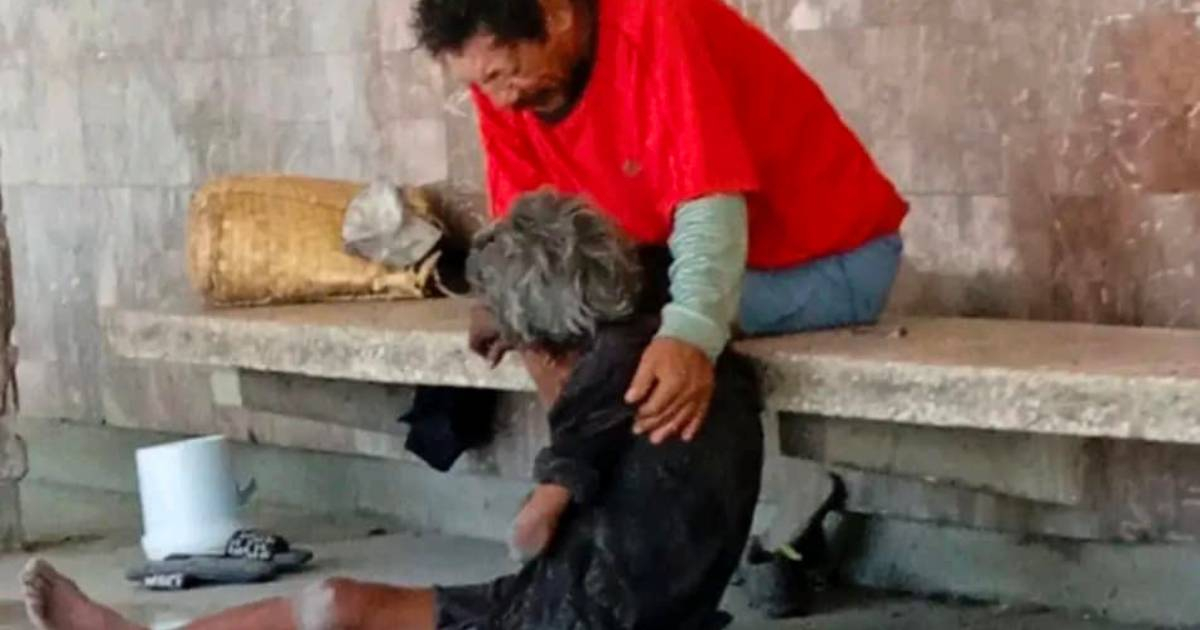
Related videos:
The Cuban regime seems to be worried about the rise of begging in the United States, while it conceals its internal statistics on the dramatic increase in poverty and homelessness on the island.
In a post on Facebook, the Minister of Foreign Affairs Bruno Rodríguez Parrilla expressed his concern about the "alarming increase in homelessness in the United States," stating that in 2024 there has been an 18% rise in the number of homeless people in that country.
He pointed out that "it's worrying that in the U.S. there is such a significant increase in the homeless population while their government squanders billions of dollars on funding wars and undermining governments in other countries."
Internet users commented on the official's post and reminded him that the Cuban government is facing, but wants to downplay, a similar phenomenon.
"And in Cuba??????????????????????????. Meanwhile, the Cuban government is squandering billions of USD," questioned a netizen.
Begging has increased significantly on the island, and poverty affects 90% of the population, according to figures released by the Cuban Observatory of Human Rights, which indicate that seven out of ten Cubans have stopped having breakfast, lunch, or dinner due to a lack of money or food shortages.
According to the Ministry of Labor and Social Security (MTSS), between 2014 and 2023, there were 3,690 individuals in a state of homelessness, a number that continues to rise due to the effects of the economic crisis the country is experiencing, characterized by shortages of food, medicine, high prices, and low wages.
Although the government has tried to downplay the magnitude of the problem, the numbers are concerning. In the 2012 Population and Housing Census, more than 1,100 people were counted as living on the streets, and by 2015, that figure had risen to 1,261.
Additionally, in more recent reports, authorities have identified the increasing number of people turning to begging in churches or among the few tourists who arrive on the island.
The rise of extreme poverty in Cuba is attributed to various factors, such as the aging population, mass emigration, inflation, shortages of basic goods, and government policies, which many consider responsible for the social crisis the country is experiencing. In this context, begging has ceased to be an isolated phenomenon, affecting people of all ages and conditions.
Despite the government's attempts to hide this reality, the phenomenon is becoming increasingly visible on the streets of cities like Havana, where the police have identified dozens of people who live by begging and lack family support.
The lack of institutional alternatives and the increasing social inequality have highlighted the regime's inability to effectively address extreme poverty in the country.
Frequently Asked Questions about the Situation of Begging and Poverty in Cuba and the U.S.
What concerns the Cuban government about the situation of homeless people in the U.S.?
The Cuban government, through its Minister of Foreign Affairs, has expressed concern over the "alarming rise in begging in the United States," highlighting an 18% increase in the number of homeless individuals in 2024. This concern is met with skepticism, as the Cuban regime is dealing with a similar internal situation that it tries to conceal.
What is the situation of poverty in Cuba according to the Cuban Observatory of Human Rights?
The Cuban Observatory of Human Rights reports that 89% of Cuban families are experiencing extreme poverty, a significant increase compared to previous years. This situation is reflected in the fact that seven out of ten Cubans have stopped eating three meals a day due to a lack of money or a shortage of food.
What is the Cuban government's response to the rising poverty and homelessness on the island?
The Cuban government has tried to downplay the issue, but the numbers are alarming. Despite acknowledging certain aspects of the crisis, such as the increase in homelessness, they have not implemented effective solutions to tackle the extreme poverty that affects the majority of the population.
What factors contribute to the increase of extreme poverty in Cuba?
Various factors contribute to the increase of extreme poverty in Cuba, including the aging population, mass emigration, inflation, shortages of basic goods, and ineffective government policies. These elements have exacerbated the social and economic crisis on the island.
Filed under: